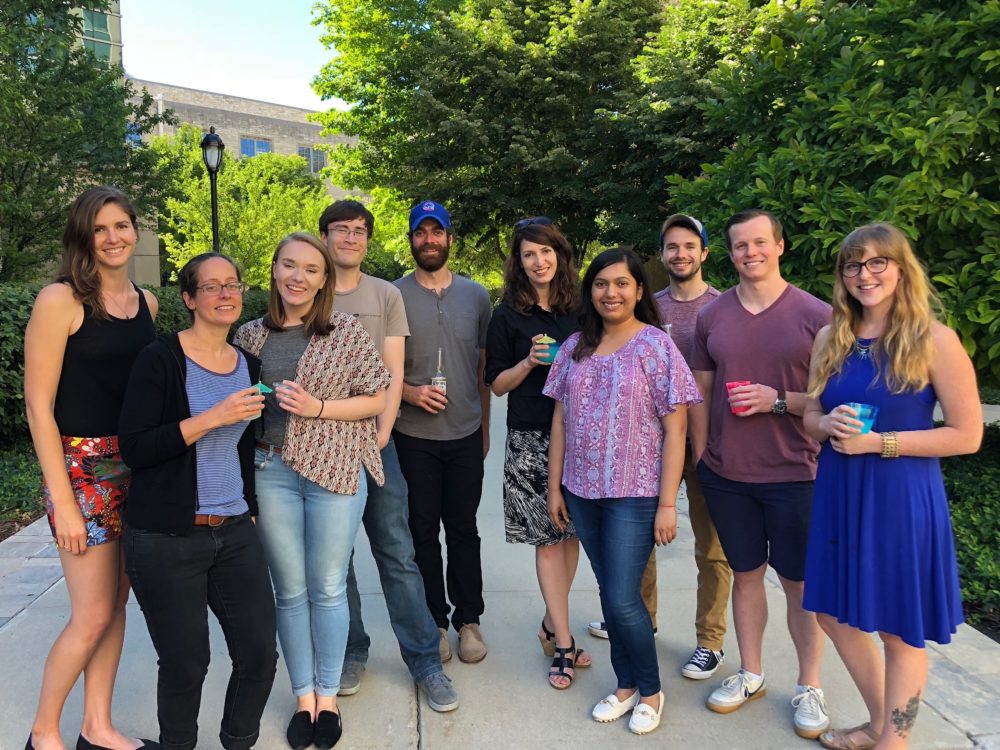Nominations open for the PLOS Genetics Research Prize 2019
We’re delighted to announce the opening of nominations for the PLOS Genetics Research Prize 2019!
In 2018, the PLOS Genetics Senior Editors selected one research article as the overall Prize winner and recipient of US$5,000, together with two ‘highly recognized’ articles. To mark the launch of this year’s Prize, we spoke to the corresponding authors of all three articles about how receiving this recognition from PLOS Genetics has helped to highlight and further their research.
Interview with Sarah Wignall, corresponding author of last year’s winning article “Interplay between microtubule bundling and sorting factors ensures acentriolar spindle stability during C. elegans oocyte meiosis”
Why is your article of interest to a broad genetics readership?
Our study addressed a fundamental question – how do cells accurately segregate their chromosomes when they divide? We took advantage of the powerful genetic model system C. elegans, combining genetic approaches such as RNAi and mutant analysis with live and fixed imaging to uncover factors that are essential for organizing spindle microtubules in female reproductive cells (oocytes). Moreover, we were also able to show that oocytes use multiple overlapping mechanisms to ensure proper chromosome segregation, highlighting how cells employ redundant mechanisms to promote robustness during this vital process.
Why’s this important?
Accurate chromosome segregation is essential for the viability of all cell types. When this process goes awry it can lead to disastrous consequences; in somatic cells, segregation errors can lead to cell death or cancer, while errors during meiosis can lead to miscarriages or birth defects. Additionally, since in humans the divisions of oocytes are much more error-prone than other types of cell division, understanding the molecular mechanisms underlying accurate chromosome segregation during oocyte meiosis is of particular importance.
In order to segregate the chromosomes, the cell builds a microtubule-based spindle. In many species (including humans and C. elegans), oocyte meiosis is carried out in the absence of centriole-containing centrosomes. Therefore, oocytes assemble and organize the microtubules of the oocyte spindle through unique, poorly understood mechanisms, and our work sheds light on these mechanisms.
How did you feel when you found out that your research had won the prize?
It was a wonderful surprise to find out that our work had been selected to receive the Research Prize – definitely cause for celebration! As scientists, we are very passionate about the work that we do, so it is incredibly rewarding to have our work appreciated by others in the community enough to receive such an honor.
How did the prize reward of US$5,000 help further your lab’s research?
The funds were used to buy reagents for follow-up studies and also to send Tim (the first author) to the ASCB/EMBO Annual meeting, where he was selected to give a presentation describing his work.
Why did you choose to publish in an Open Access community-run journal?
We appreciate that PLOS Genetics is a community-run journal, where all of the editors are active researchers. I have submitted two papers from my lab to PLOS Genetics (the prize-winning paper and another published the following year), and I felt that both were handled fairly by the editors – I will definitely submit more manuscripts to the journal in the future. We also appreciate that PLOS Genetics is open-access. Science is for everyone, not just those who are affiliated with a university that pays for journal access. Therefore, having our work freely available is an added benefit.

We also spoke to Amelie Baud and Oliver Stegle, corresponding authors of the ‘highly recognized’ article “Genetic Variation in the Social Environment Contributes to Health and Disease”, who told us: “the recognition of our work on Social Genetic Effects through the PLOS Genetics Research Prize competition was very encouraging, especially as this study marked a new direction for our research.”
Carlos Eduardo G. Amorim, corresponding author of the ‘highly recognized’ article “The population genetics of human disease: The case of recessive, lethal mutations”, explained that “to have my article chosen as one of the highly recognized articles from 2017 in PLOS Genetics demonstrated the relevance of my new line of inquiry on deleterious genetic variants for the scientific community. Furthermore, it has influenced me to further explore this theme in my future research.”
Nominate your favorite PLOS Genetics research article published in 2018 by completing this short Nomination Form.
Nominations close on Thursday June 13, 2019 at 11:59 AM ET and the winning article will be selected by the journal’s Senior Editors based on the criteria of scientific excellence and community impact.
All winning articles from previous years can be viewed in the PLOS Genetics Research Prize Collection.
For more information about the Research Prize, please take a look at our Program Page and Program Rules. Feel free to send any questions to plosgenetics@plos.org.
Featured image credit: June 2018 Issue Image. Streptococcus pneumoniae fratricide. Image Credit: Prof. Fernanda C. Petersen


